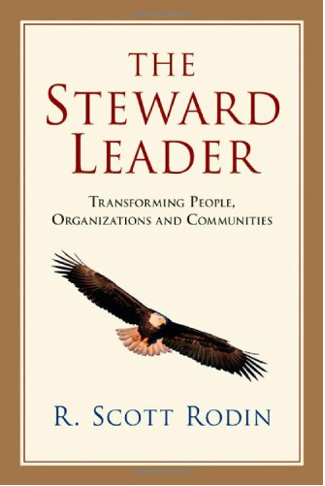
Fighting The Need to Increase
When John the Baptist saw Jesus walking in his presence, he made the declaration,
“He must increase, but I must decrease.”
Most Christian leaders would say that in their hearts they would wish that Jesus would increase and they would decrease. But it is hard to decrease in a leadership position. There are natural trappings that distinguish those in leadership such as salary, title, prestige, priority, power, influence, honor and advancement. And in each area there are tempting opportunities for increase.
There are also pressures to increase and motivations to build a kingdom in which we house our growing collection of leadership trappings. This desire for the fame and fortune of leadership must be met not only by resistance, but, according to John Adams, we must have “a habitual contempt of them.” Henri Nouwen is even more direct,
The way of the Christian leader is not the way of upward mobility in which our world has invested so much, but the way of downward mobility ending on the cross… Here we touch the most important quality of Christian leadership in the future. It is not a leadership of power and control, but a leadership of powerlessness and humility in which the suffering servant of God, Jesus Christ, is made manifest
Perhaps the hardest place to decrease is in the influence and the power we hold over people and decisions. For this reason we find Christian leaders who are overly directive at best, and autocratic at worst. And as a result we produce churches and ministries that are rife with ‘learned helplessness’.
By overestimating our own worth, we help our people depend on us for everything. And that dependence feeds into our need to be needed, to be the “idea person” and visionary, and to be in control. We tell ourselves that the more we lead in this way, the more our leadership is valued and our presence desired.
Of course, this is not real leadership, but a counterfeit that gives us our increase and expands our kingdom. It also, however, does a terrible disservice to our people, leaving them uninvolved and under-developed. It wastes resources and limits our ministry, all under the guise of strong leadership and the use of our God-given talents for ‘getting things done.’
For this reason, leadership bent on increasing the leader lacks integrity. Integrity is the attribute of honesty, moral behavior and a value-centered life. Integrity witnesses externally all that we are internally. And for that reason, godly integrity begins with our inner life in God. This means that our self-confidence must be founded in our faith in Christ and our desire to be like Him in every way.
We must seek to be Christ-like in our inner being and be confident that “He who began a good work in you will be faithful to complete it.” ~Philippians 1:6
If Christ is truly living in us, as Paul reminds us, then we can in turn live for others in our work. We will have no need to seek for increase in our positions of power. We will have no desire to build our own kingdoms and advance our own reputations. Our lives are hidden with Christ in God (Colossians 3:3) and therefore it is no longer we who live, but Christ who lives in us (Galatians 2:20). It is only with this kind of godly integrity that we can seek to decrease as Christ increases in and through our work as leaders.
Truly godly leaders empower their people, give away authority, value and involve others, seek the best in and from their people, and constantly seek to lift others up, push others into the limelight, and reward those they lead. All so that God’s will might be done in a more powerful way.
They seek no glory for themselves, but find great joy in seeing others prosper.
They take no account of their reputation, but seek that Jesus’ face be seen in all they do.
The proof of the depth of integrity in our leadership lies in part in whether those who serve under us are growing in their faith as they excel in their work. The test question is, “are those we lead becoming more like Christ as a result of our leadership? That is, are they growing spiritually as stewards? Are they experiencing freedom as followers of Christ as they work under and with us?”
Steward leadership is a call to a lifestyle of an ever-decreasing thirst for authority, power and influence, where the quest for reputation is replaced by the joy of humble service.
###
Dr. R. Scott Rodin has been in not-for-profit leadership and consulting for twenty-five years. He has served as counsel to over 100 organizations across the country and in Canada and Great Britain including colleges, seminaries, schools, churches, para-church ministries and other not-for-profit organizations. Today’s post is an excerpt from his book, The Steward Leader. (IVP 2010)
Learn more about Steward Leadership by attending The Outcomes Conference 2015. Register for the Academy Experience and for Dr.Rodin’s Intensive Training Institute session (#11) on April 14, 2015: Set Free to Lead: Exploring Four Components of Leadership from the Perspective of Freedom.

What is Christian Leadership Alliance?
Christian Leadership Alliance equips and unites leaders to transform the world for Christ. We are the leaders of Christ-centered organizations who are dedicated to faithful stewardship for greater kingdom impact.
Sign up for FREE blog updates.
Upcoming Events
Check back later!




